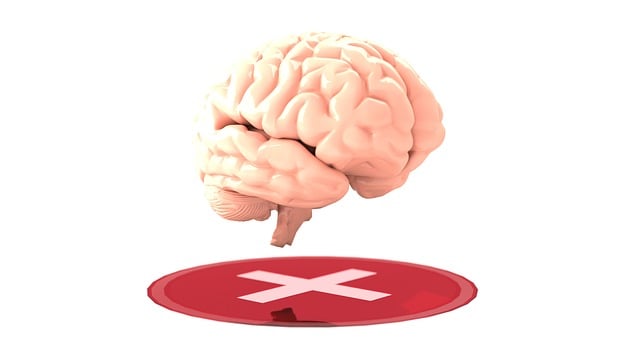Mental illness stigma severely hinders access to treatment, leading to isolation and worsening conditions. Organizations like Broomfield Therapy for Therapists-Clinicians play a vital role by offering therapy sessions and educational initiatives that empower individuals with coping skills and emotional regulation techniques. Through non-judgmental support, evidence-based treatments, and open discussions, therapists reduce stigma associated with seeking help. Broomfield Therapy's innovative methods, including interactive workshops and continuous learning, foster empathy and inclusive practices, creating safer environments for effective treatment. Community initiatives like self-awareness exercises and mental health conversations further contribute to stigma reduction.
Mental illness stigma remains a significant barrier to effective treatment and recovery. This article explores comprehensive strategies to reduce this pervasive social construct, focusing on the role of therapists and clinicians as key agents of change. We delve into the impact of stigma on mental health treatment, present evidence-based approaches to combat it within professional settings, and introduce Broomfield Therapy—a novel method designed specifically for therapists and clinicians to overcome their own stigma-related challenges.
- Understanding Stigma and Its Impact on Mental Health Treatment
- The Role of Therapists and Clinicians in Reducing Stigma
- Effective Strategies for Challenging Mental Illness Stigma in Society
- Broomfield Therapy: A Novel Approach to Combat Stigma Among Professionals
Understanding Stigma and Its Impact on Mental Health Treatment

Stigma surrounding mental illness can significantly hinder a person’s ability to seek and maintain effective treatment. This societal shame often prevents individuals from discussing their struggles openly, leading to isolation and delayed access to essential services. The impact is profound, causing many to suffer in silence while their conditions worsen. Understanding stigma means recognizing its diverse forms—from overt discrimination to subtle stereotypes—and acknowledging how these perceptions create barriers to care.
In efforts to combat this issue, professionals like Broomfield Therapy for Therapists-Clinicians play a vital role. Through therapy sessions and educational initiatives, they guide individuals in developing coping skills and emotional regulation techniques. The Mental Wellness Podcast Series Production can also be an effective tool to spread awareness, offer support, and encourage open conversations about mental health, thereby reducing the stigma attached to seeking help.
The Role of Therapists and Clinicians in Reducing Stigma

Therapists and clinicians play a pivotal role in reducing the stigma surrounding mental illness. Through their interactions with clients, they can foster an environment that encourages open discussions about mental health challenges. By providing non-judgmental support and evidence-based treatments, therapists help individuals develop coping skills to manage their conditions effectively. This not only improves their quality of life but also promotes a more understanding and accepting societal perspective on mental illness.
In addition to direct therapy sessions, professionals can contribute to stigma reduction by participating in the development and implementation of Mental Wellness Coaching Programs and Self-Care Routine Development for Better Mental Health initiatives. These programs aim to empower individuals with tools to maintain their mental wellness proactively. By breaking down barriers and offering guidance, Broomfield Therapy for Therapists-Clinicians can help create a more inclusive and supportive community where those facing mental health issues feel understood and encouraged to seek help without fear of stigma.
Effective Strategies for Challenging Mental Illness Stigma in Society

Reducing the stigma surrounding mental illness is a collective effort that requires a multi-faceted approach. One effective strategy is to empower therapists and clinicians through specialized training in Broomfield Therapy, which equips them with the skills to provide compassionate care and challenge societal norms. By integrating this therapy into clinical practices, professionals can foster an environment of understanding and acceptance.
Additionally, promoting self-awareness exercises and emotional well-being promotion techniques within communities can significantly contribute to stigma reduction. Encouraging open conversations about mental health, sharing personal stories, and educating the public on the realities of various conditions are powerful tools. These methods help dispel myths and create a more supportive social fabric, ultimately leading to better access to care for those struggling with their mental health.
Broomfield Therapy: A Novel Approach to Combat Stigma Among Professionals

Broomfield Therapy represents a novel approach to combat stigma among professionals and foster inclusive practices in mental health care. This therapeutic method encourages therapists and clinicians to actively engage in empathy-building strategies, aiming to bridge the gap between their own experiences and those of their clients. By prioritizing emotional regulation techniques, Broomfield Therapy enables healthcare providers to create safer, more supportive environments. These efforts are pivotal in the ongoing Mental Illness Stigma Reduction Efforts, as they promote understanding and acceptance, ultimately enhancing the effectiveness of treatment.
Through interactive workshops and continuous learning, professionals are equipped with tools to dispel myths and correct misconceptions about mental illness. This not only improves their ability to connect with clients but also encourages a more nuanced perspective on emotional regulation. As these strategies gain traction, we can anticipate a more empathetic and inclusive landscape in therapy rooms, reflecting the broader societal shift towards reducing stigma.
Mental illness stigma remains a significant barrier to treatment and recovery. However, through education, empathy, and innovative approaches like Broomfield Therapy, therapists and clinicians can play a pivotal role in reducing this stigma within their practices and society at large. By employing effective strategies discussed in this article—including open dialogue, personal stories, and policy advocacy—we can foster a more inclusive environment that supports those facing mental health challenges. Ultimately, these efforts are crucial steps toward normalizing conversations about mental illness and improving overall well-being.













